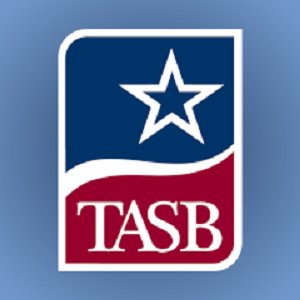
Senate names budget conferees
The Texas Senate on Wednesday named assigned the following members to hash out the differences with the House conferees on the state budget bill, House Bill 1, : Jane Nelson (R-Flower Mound), chair; Joan Huffman (R-Houston); Lois Kolkhorst (R-Brenham); Robert Nichols (R-Jacksonville); and Larry Taylor (R-Friendswood). The House conferees tabbed last week are: John Zerwas, chair (R-Richmond), Greg Bonnen (R-Friendswood), Sarah Davis (R-Houston), Oscar Longoria (D-Mission), and Armando Walle (D-Houston).
Both chambers agreed on overall funding levels related to education: $2.7 billion for property tax reform and $6.3 billion for school funding.
Survey: Voter support increased support for public schools
A survey of Texas voters by the University of Houston Hobby School of Public Affairs found strong support for increasing the state’s share of funding for public schools, along with support for increasing several targeted taxes to pay for it. More than two-thirds of respondents also said they consider property taxes in Texas to be high and more than 75 percent support limiting how much money local governments can collect through property taxes. Read the report.
Lewisville ISD adopts STAAR resolution
Lewisville ISD has previously expressed concerns over STAAR grading errors and is now joining others in expressing concern over STAAR readability levels. The LISD Board of Trustees has adopted a resolution opposing the use of assessment items with a readability level higher than the grade tested and imploring legislators to take action this legislative session to ensure state assessments more accurately reflect what students know and can do. Read the resolution.
House, Senate education committee activity
The House Public Education Committee and Senate Education Committee have been extremely busy this past week and have posted heavy agendas for next week.
Some bills of note that passed this week:
SB 213 extends the use of Individual Graduation Committees to Sept. 1, 2023.
HB 43 prohibits charter schools from using discipline history in student admissions decisions.
CSSB 686, as substituted, allows a student to take one-half credit of Economics or “Personal Financial Literacy and Economics” for high school graduation credit.
HB 769 requires a school board to receive approval from the commissioner of education to make a severance payment to a superintendent who is terminated for malfeasance or who resigns in order to avoid termination for malfeasance. The commissioner could not approve a severance payment to a superintendent who hasn’t completed 51 percent of his or her contract.
HB 2776 requires an open-enrollment charter school to prepare an informed choice report containing certain information about the school: academic programs, services, admission criteria, performance, transportation, and other information that is not easily available to parents.
HB 2987 requires charters to post information regarding board members’ financial ties to the charter.
HB 3013 subjects open-enrollment charter schools to the same laws and rules that independent school districts must follow regarding suspension or expulsion of a student.
HB 3204 stipulates that a school district may not include more than one project in any proposition submitted to the voters to authorize the issuance of bonds.
HB 3906 relates to the adoption and administration of assessment instruments used to assess the performance of public school students.
HB 4242 prohibits use of an assessment instrument until it has been evaluated by a qualified group of educators who can evaluate the test for readability within the grade level tested.
A few bills of note coming up next week include:
SB 629 requires the 50 largest school districts to post an “electronic database of district finances.” The database must include a graphical representation of the district’s operating and debt service funds, a “visualization chart” depicting district financial data trends for the preceding five years, and the district’s annual financial report for the past five years. School districts must also post a searchable transaction register for the district checking account with information about the payee, amount paid, date, and purpose of the expenditure. The transaction register must be updated at least monthly and maintained for three years. This does not include charter districts, such as IDEA and KIPP, which would fall squarely in the top 50 largest districts in Texas.
SB 2201 sets term limits for trustees in districts with more than 20,000 students and requires districts to create student outcomes plans for one, three, and five years going forward. This bill does not apply to charter school boards.
HB 535 requires high school students to complete and submit a FAFSA as a requirement to graduation. A parent, guardian, or emancipated student may sign a form to opt out of this requirement.
HB 727 requires a school board to adopt a policy that requires a school counselor to spend at least 80 percent of the counselor’s work time on counseling duties, which would not include test administration. If the school board determines that a counselor must spend less than 80 percent of total work time on counseling duties, the adopted policy must include reasons why, list the other duties that are expected, and set a percentage of work time that the counselor is required to spend on counseling duties.





